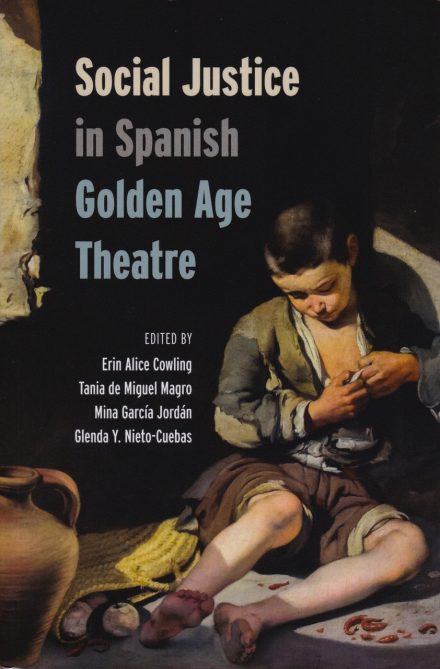Garcia, associate professor of Spanish, also contributed an essay to the work titled "Social Justice in Spanish Golden Age Theatre."
A new collection of original essays and interviews co-edited by Associate Professor of Spanish Mina Garcia has been published by the University of Toronto Press.
 The volume titled “Social Justice in Spanish Golden Age Theatre” was edited by Garcia, Erin Cowling of McEwan University in Edmonton, Canada, Tania De Miguel Magro of West Virginia University and Glenda Y. Nieto-Cuebas of Ohio Wesleyan University.
The volume titled “Social Justice in Spanish Golden Age Theatre” was edited by Garcia, Erin Cowling of McEwan University in Edmonton, Canada, Tania De Miguel Magro of West Virginia University and Glenda Y. Nieto-Cuebas of Ohio Wesleyan University.
The new work discusses the challenges facing the humanities in general and in Spanish Comedia studies specifically. It explores how adaptations of classical theatre portray social justice and how throughout history the writing and staging of comedias have been at the service of a wide range of political agendas.
This collection of original new essays focuses on the many ways in which early modern Spanish plays engaged their audiences in a dialogue about abuse, injustice, and inequality. Far from the traditional monolithic view of theatrical works as tools for expanding ideology, these essays each recognize the power of theatre in reflecting on issues related to social justice.
The first section of the book focuses on textual analysis, taking into account legal, feminist and collective bargaining theory. The second section explores issues surrounding theatricality, performativity, and intellectual property laws through an analysis of contemporary adaptations. The final section includes interviews that reflect on social justice from the point of view of practitioners, including actors and directors.
Along with co-editing the volume, Garcia also contributed an essay titled, “El Trato de Argel and the Immigrant Crisis.”
In his review of the new book, Manuel Delgado from Bucknell University notes that “this volume engages modern readers and spectators in issues that transcend our speculation. The arguments presented are articulate, insightful, clear, and convincing. The analysis takes into consideration relevant and meaningful bibliographical sources on current social justice issues related to social class, gender, Native Americans, distributive/commutative justice, Moriscos, farm workers, and the enemy/other.”
Bruce Burningham with Illinois State University calls the work “a very timely book” that “will be of interest to scholars and students of what used to be called the Spanish “Golden Age” theatre, as well as anyone working on pan-European early modern theatre or those interested more generally in social justice issues.”


